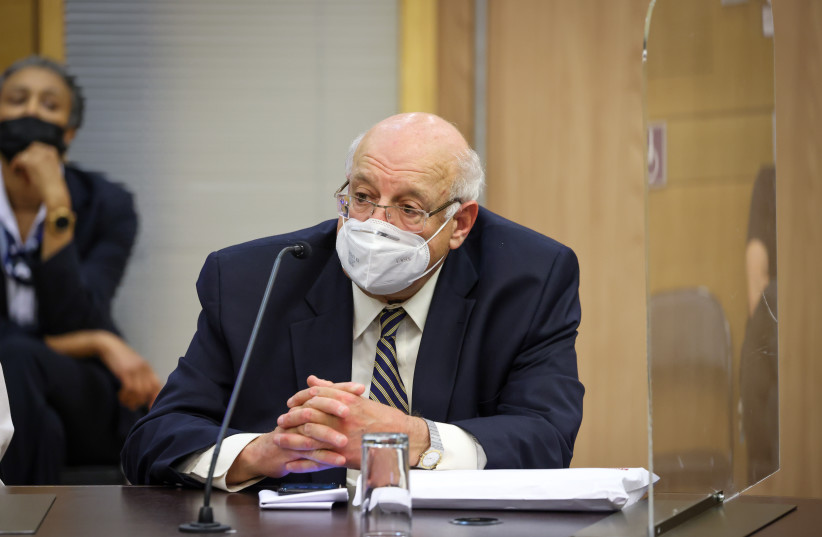The debate about the media coverage of the shooting terror attack in Tel Aviv on Thursday night continued this week, with politicians calling for more stringent regulation and journalists resisting.
The public debate began after spokesperson units of the Israel Police, IDF and Shin Bet penned a harshly worded letter condemning reporters for interfering during the hunt for the escaped terrorist and for broadcasting classified information.
The Knesset on Tuesday held a joint Public Security and Economics Committee session attended by Communications Minister Yoaz Hendel (New Hop), Knesset members, Israel Police representatives, Second Authority for Television and Radio head Eden Bar Tal, Israel Press Council President and High Court Judge (ret.) Chanan Meltzer, news channel representatives and others.
The session's goal was not to hold a public hearing for the press but to learn the appropriate lessons, Public Security Committee head MK Merav Ben Ari (Yesh Atid) said.
Economics Committee head Michael Biton (Blue and White) echoed Ben Ari's comments, saying that he expected coverage that was more "prudent" and took "all of the [differing] aspects into account."

"The lessons learned from the latest terror attack necessitates broad change," Hendel said during the session.
"There a number of conclusions to be implemented — of which the main ones fall under the responsibility of the police and the National Information Agency, whose job it is to manage the scene of terrorist attacks and shootings," he said.
"In an ongoing shooting spree, the area needs to be closed off as it is in the Gaza border area and during security situations in Jerusalem."
If the streets would have been closed off and specific points designated for press it would have been easier to control the incident, Hendel said. But the media was not void of criticism as well.
"On Thursday there was lawlessness. In the current reality when everything is broadcast live it is extremely difficult to censor the material or for an editor to make decisions. One of the decisions that arose in our [previous] discussions was to broadcast in delay, [creating a] break between filming and broadcasting," Hendel said.
Another conclusion was that the news agencies conduct self-regulation as they did during the Second Intifada, Hendel said.
"Formulating a joint Ethical Code for these kinds of events can be a good solution. If they do not do so, we will not hesitate to activate regulation."
"National security comes before com[etition between news agencies," Hendel concluded.
Journalists' organizations countered with claims of encroachment on the freedom of the press.
"We oppose litigation that limits media coverage, but support self-regulation," said Anat Saragusti from the Union of Journalists in Israel. "We are working as we speak on a Code of Ethics that will provide guidelines for coverage during security events."
"The press' job is not to maintain national security, that is the role of the Defense apparatus. Nor is it the press' role to maintain national morale, but rather to serve the public's right to know and the public interest."
"It is very easy to attack the press when was happened during the event was managerial chaos. The press did its job and reflected what happened on the ground."
Meltzer also opposed the calls for stricter governmental media regulation.
"We live in a new reality of unregulated social media," he said.
The classic news outlets, which have editors, counter waves of rumors, and their reports actively debunk false claims, he argued.
"The public has a right to know - and if reports don't come from classic news, they will come from [social] networks," Meltzer said.
"The media's role is to reflect reality. If what we see in the mirror is improper, there are voices calling to shatter [the mirror]," he said.
"It seems that in order to cover for things that were not done properly during the [terror] event, the spotlight is being directed at the media. The solution is self-regulation - give us the opportunity to do so," he concluded.
Another member of the Israel Press Council leadership, Dr. Anat Peleg, added that no other Western country regulates media coverage during terror attacks.
"The BBC, EU and UNICEF compiled ethical guidelines that balance press freedom with the right of security and the need to respect casualties' privacy rights and the public's feelings.," she said.
Still, no Western country has forced regulation and neither should Israel, she argued.
